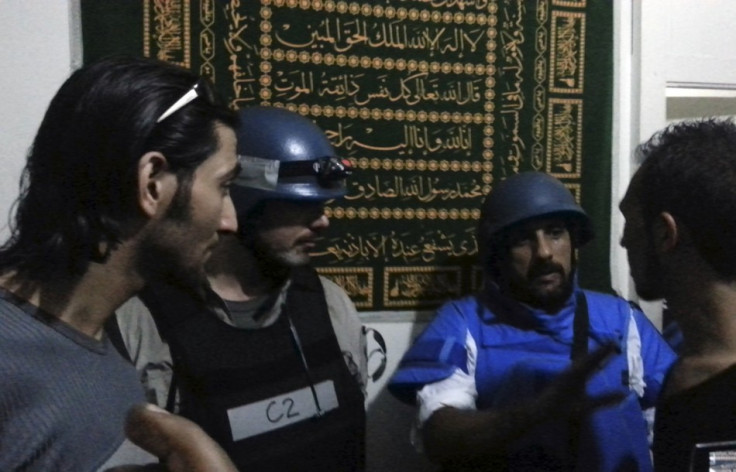Syria Opposition Calls Off Geneva Peace Talks as Russia Warns US Over Strike

The Syrian opposition announced they were calling off their planned participation in Geneva peace talks following the suspected chemical attack in Ghouta.
As UN inspectors visited two hospitals at the site, collected samples and interviewed witnesses, survivors and doctors, members of the Western-backed Syrian National Council (SNC) took a hard stance over plans to hold a peace conference to solve the Syria crisis.
"We must punish this dictator, Bashar [al-Assad] the Chemist we call him, and then we can discuss Geneva," coalition Secretary General Badr Jamous told Reuters.
His words were also a response to Russia's foreign minister Sergey Lavrov who flagged the talks as a way to prevent a military conflict in the country.
Lavrov said that a possible missile strike targeting Syrian military facilities associated with chemicals weapons capacity and infrastructure would be a grave violation of international law.
"They cannot produce evidence, but keep on saying that the 'red line' has been crossed and they cannot wait any longer," he said during a press conference.
He was referring to growing rumours that the US, the UK and allies are hinting at military action against Assad.
"If anybody thinks that bombing and destroying the Syrian military infrastructure, and leaving the battlefield for the opponents of the regime to win, would end everything - that is an illusion," he said.
Syrian deputy foreign minister Faisal Mikdad told AP that any military action against Syria would trigger chaos in the region.
"There will be no international military intervention," Mikdad said. "If individual countries want to pursue aggressive and adventurous policies, the natural answer [... ] would be that Syria, which has been fighting against terrorism for almost three years, will also defend itself against any international attack."
© Copyright IBTimes 2025. All rights reserved.






















